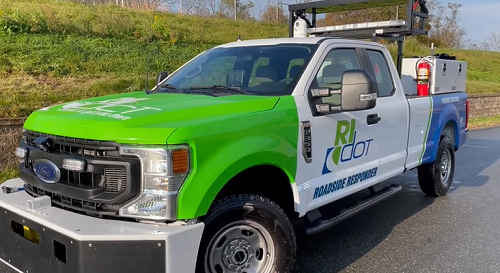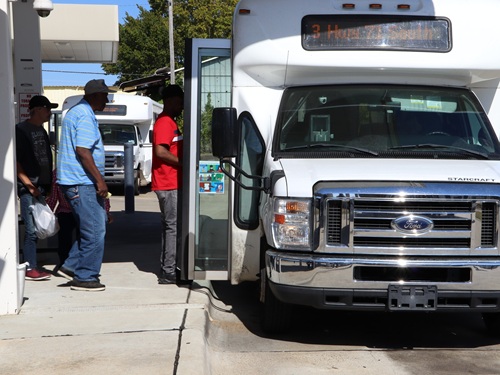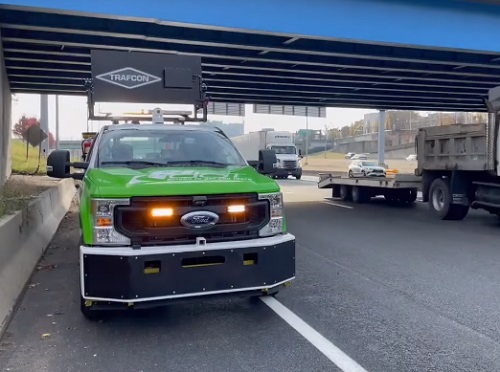The Rhode Island Department of Transportation has launched a pilot program whereby service vehicles will patrol Providence-area highways to help clear disabled vehicles stopped on the side of the road – improving traffic flow while reducing the risk of secondary crashes.
[Above photo by RIDOT]
The agency stressed that this is not an on-call service, but rather a RIDOT-directed effort to clear congestion on highways.
As is the model in other states with similar service vehicles, RIDOT said its “Roadside Responders” will patrol high-volume highways in Providence and stop whenever they encounter a disabled vehicle.

This agency stressed that this pilot program does not take the place of standard roadside assistance or towing service, so motorists should still reach out to their roadside assistance providers as soon as possible after pulling over safely into the shoulder. However, getting motorists on their way as quickly as possible should reduce congestion, keep traffic flowing, and lower secondary crash risk, RIDOT stressed –thus improving overall highway safety.
“These vehicles will be an extra set of hands and extra pair of eyes on our busiest highways,” noted RIDOT Director Peter Alviti Jr. in a statement. “By helping others who have the misfortune to break down on the side of the Interstate, we will keep the highways flowing better and safer for all drivers.”
Under the pilot program, two vehicles will patrol all of I-195 in Rhode Island and I-95 from the Massachusetts state line in Pawtucket to the Airport Connector in Warwick during peak travel times in the morning (6:30 a.m. to 9:30 a.m.) and evening (3:30 p.m. to 6:30 p.m.) Monday through Friday.
The Roadside Responder vehicles are specially marked Ford F-350 pickup trucks equipped with safety lights and a variety of tools and supplies to help motorists in need. They will be able to provide fuel, change flat tires, make minor mechanical repairs, jump start a dead battery, or call for a tow truck if needed.
The agency estimates that every year the Roadside Responder service will save 238,000 hours of vehicle delays, 58,000 gallons of fuel and 580 tons of carbon emissions.
Based on the results of the pilot program, RIDOT said it may expand the services in the future and add more vehicles, increase coverage times or include additional roadways to be patrolled.
 States
States
Nick Donohue Appointed Virginia’s Secretary of Transportation
December 12, 2025 States
States

